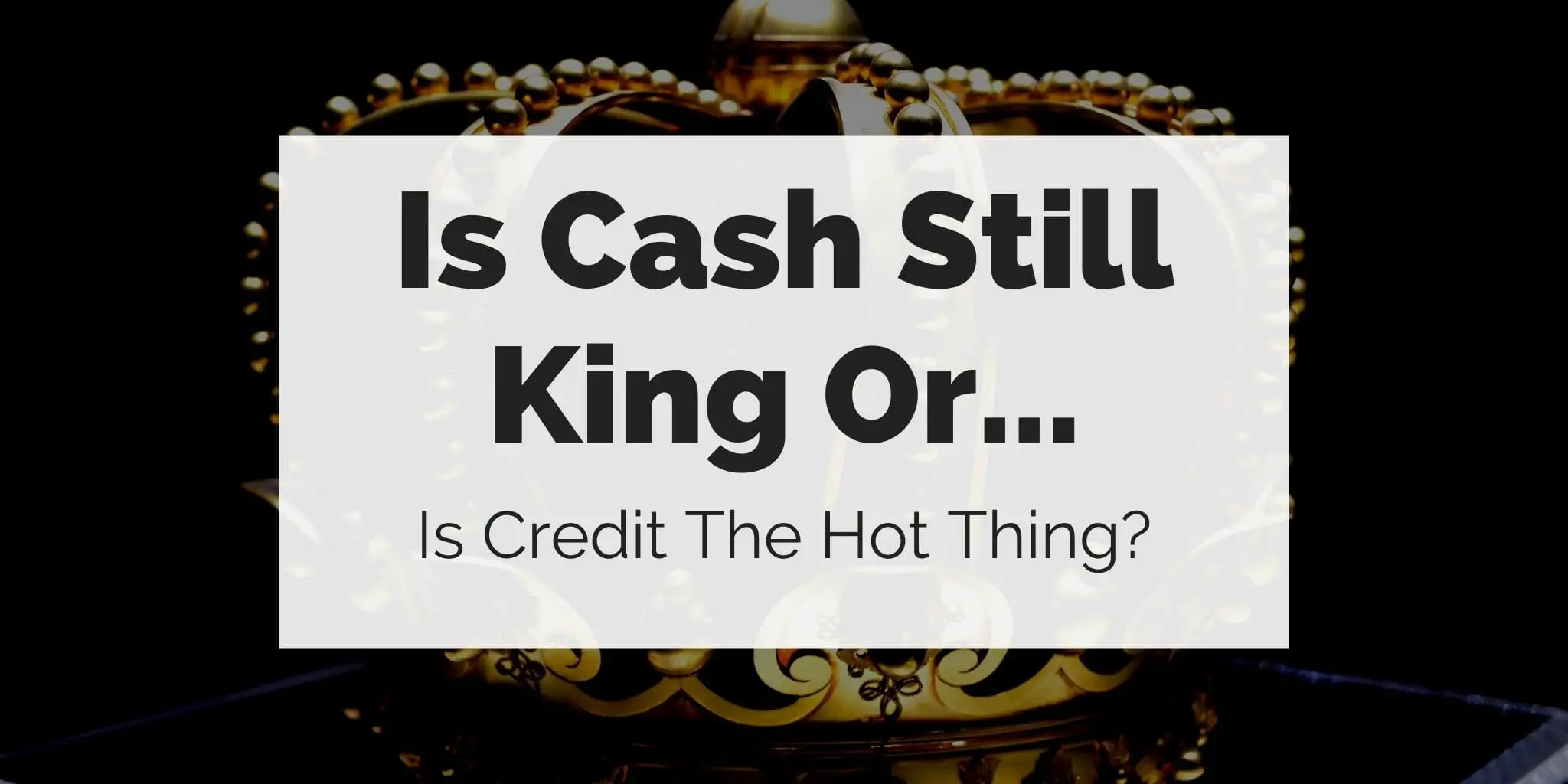Some people swear by using cash and dislike plastic of any kind. Others love to pull the card from their purse or wallet and defer the direct expense until later. But which is best?
If you’re intent on becoming wealthy, the benefits of cash versus credit are worth exploring. In this article, we do just that.
Immediacy vs. Deferment
Cash has an immediacy and realness to it that credit does not. Physically handing over greenbacks to pay a balance feels different from sliding a credit card across the counter. Some people prefer the immediacy of using a credit card to pay.
With a credit card transaction, the charge goes onto your bill and is payable in a few weeks. Assuming that there’s no carried-over balance being charged daily interest, charging and later paid in full is free. Also, deferring the cost may feel good psychologically regardless of whether there’s a significant financial benefit to doing so.
What About Safety?
The safety of our money is frequently in the news. Whether that’s because an ATM was raided, a cryptocurrency exchange shutdown or the latest cybercrime was reported, it’s all a bit worrying.
From a security standpoint, comparing credit vs cash is useful. This includes when using ATMs, handing over dollars at the retail checkout, or paying online.
Are Credit Cards Safer?
Paying a restaurant bill with a credit card or making online purchases can feel a little worrisome, but the reality is it’s extremely safe. From a credit vs cash perspective, this blog post from Tally explores why credit cards are often safer. The likelihood of a problem is minimal when using and managing credit cards responsibly. Usually, in the case of identity theft or a hack, consumer protections and the ability to chargeback a fraudulent transaction give credit users ample peace of mind.
With safety, it always pays to follow good practices. These might include not installing apps from alternative app stores, sticking to ones from established brands, and using a virus scanner app. When used in combination, these can keep your online activities out of danger.
Is Cash the Better Choice?
Cash feels more substantive because of its physicality; it feels real.
Nevertheless, there remains a risk when going to an ATM to withdraw money. It does make you a target for unscrupulous people who’d rather steal than work for it.
Dropped or stolen money or being given the incorrect change carries a cost too. Once the notes are no longer in your possession, there’s usually no way to get them back.
By comparison, spending on a credit card includes protection from an online store scamming you or someone skimming your card in a store. Fraudulent transactions can be rejected or charged back, making credit cards safer than cash.
How May ATMs Are in Your Area?
In some states, ATMs are becoming harder to find.
When banks are shuttering branches, or providing fewer ATMs, then it can become difficult to get your hands on cash. As more people get used to using plastic to pay for everything, the trend of fewer ATMs may continue.
Also, factor in the cost of ATM withdrawals. Some banks charge for each one and this is like a silent cost that adds up over the months. Paying on plastic doesn’t include these fees when the account balance is repaid in full after the credit card bill is issued. It’s a neat way to sidestep the ATM fees.
Benefits from Loyalty
It depends on the card issuer, but many credit cards come with a package of benefits to encourage customer loyalty.
While Air Miles is still popular, other benefits may be offered depending on your personal preferences. Reward cards have loyalty programs providing cashback on purchases to reduce the cost of card usage.
Paying with cash used to be preferred with retailers offering a discount for these payments. However, because they now must pay to deposit cash at the bank, manage cash in the till, and handle money collections, it’s often not the benefit that it used to be for retailers. While credit card payments aren’t necessarily passed through to the retailer immediately, it’s fast enough that it’s preferred over other cumbersome options such as cash.
Better Track Your Spending
Withdrawing money at the ATM is hard to track. Unless you note down every dollar and where it’s spent, it can become a bit of a mystery at the end of the month. All you’re left with are several cash withdrawal receipts and a rough idea of how the money was probably spent.
With credit cards and debit cards too, there’s a transaction history to rely upon. You’ll not only see the individual transactions but retaining every sales receipt allows you to tie the charge to what was purchased. When you are keen to use a budget and stick to it, charging everything allows you to better manage spending by tracking it more effectively.
Grace Period to Earn a Little Interest
The grace period is the time between when the item was purchased, and it’s hit the credit card balance. This doesn’t apply to debit cards though because they’re deducted immediately from the checking account balance.
Several weeks can accrue where you retain the balance before the credit card bill arrives. When managed well, it’s possible to transfer the spare funds into a high-interest savings account or money market account at a brokerage. This can earn more interest during the credit card’s grace period that’ll last a few weeks. It sure beats paying cash and getting no savings interest for your trouble.
While some staunch holdouts insist on sticking to cash above all else, more people are moving to charge out of convenience. The various benefits when using a credit card responsibly add to the incentive to avoid cash. The fact that payments via plastic are faster at the till than cash now is often the only reason needed for many people.

